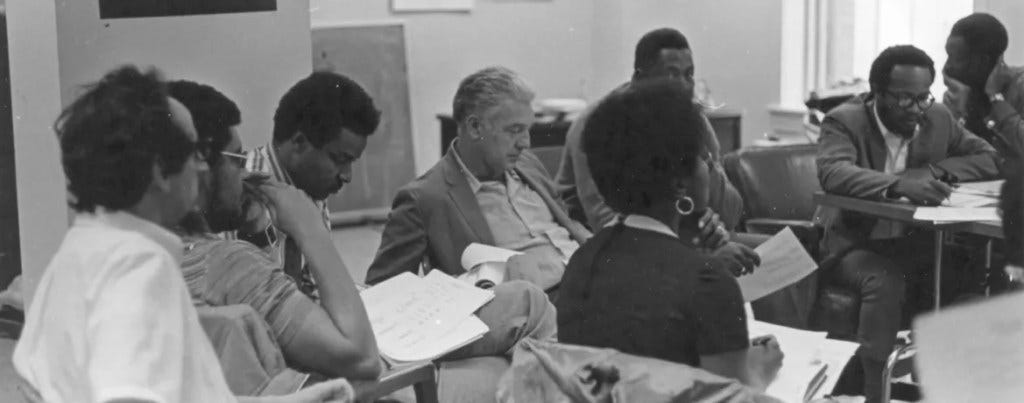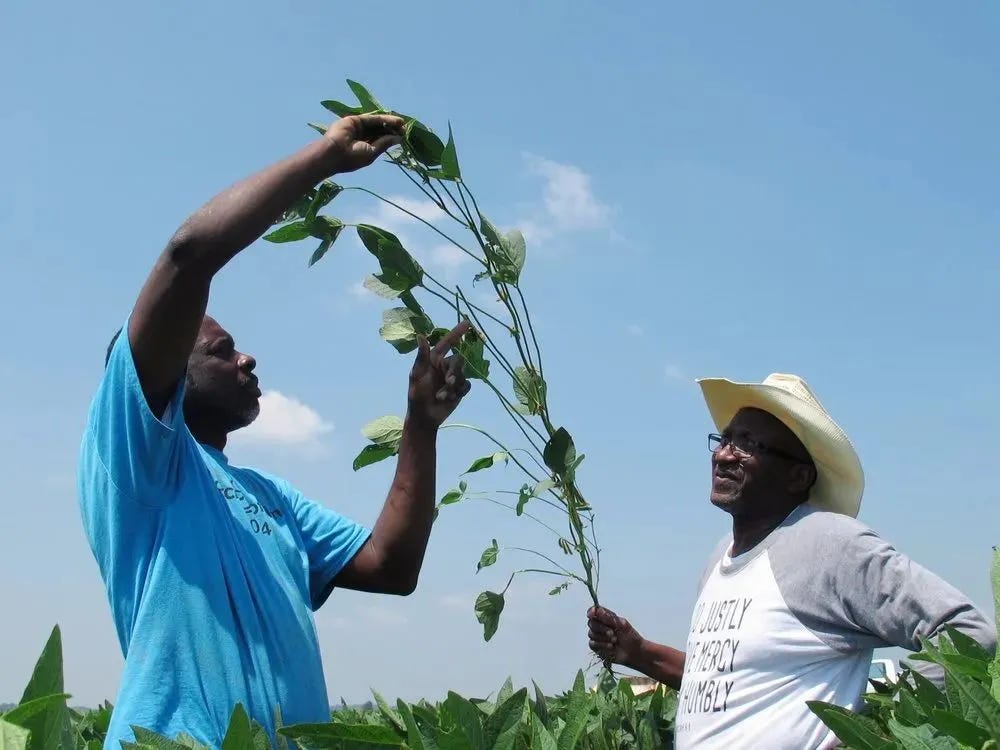Black farmers are reclaiming their land — whether the USDA stands in the way or not
While billionaires flip farmland for profit, Black farmers are flipping the script on stolen land.
We’ve all heard the rumors of foreign interests buying up millions of acres of American farmland. In fact, over 45 million acres of U.S. farmland—nearly the size of half of California—are now owned by foreign entities, from Canadian investors to Saudi-controlled corporations. That’s 3.6% of all U.S. private agricultural land, according to the USDA’s latest disclosures.
While states like Texas and Iowa scramble to pass legislation limiting foreign land grabs, there’s another, quieter threat happening closer to home: our own elected leaders are helping turn American farmland into investment portfolios.
Vice President J.D. Vance has a disclosed financial stake in AcreTrader, a startup that treats U.S. farmland like stock shares—bundled, sold, and traded on a private platform that markets heavily to high-net-worth investors. Why? Profit, of course. Certainly, not food sovereignty. And certainly not reparative land justice.
Platforms like AcreTrader frame farmland as a financial asset, Black farmers know all too well what happens when land becomes a commodity — because they’ve consistently been priced out, pushed out, and written out of ownership for generations.
But there is a more positive story tucked in American farmland right now. While the USDA drags its feet and financial interests privatize land at scale, Black farmers across the U.S. are reclaiming what was stolen.

Black farmers are making a comeback
For generations, Black farmers were pushed off their land through USDA discrimination, denied access to credit, targeted by racist violence, and redlined out of federal agricultural programs. In 1920, Black farmers made up 14% of the nation’s growers. Now? Less than 1.3%.
And when the 2021 American Rescue Plan set aside $4 billion for debt relief for “socially disadvantaged farmers,” mostly Black and brown, a series of lawsuits brought by white farmers halted the program before most of the money ever went out. That relief—meant to correct historic harm—has been blocked for years, with no full replacement in sight.
But this isn’t a story about what was lost. It’s about what’s being rebuilt.
In Georgia, the legendary Black-led land trust New Communities, originally founded in 1969, continues to reclaim acres once taken. After winning a $12 million USDA settlement for discrimination in 2009, they reinvested in land, education, and agricultural training for the next generation of Black farmers.

In Detroit, the Black Community Food Security Network turned urban decay into fertile ground, now managing over seven acres of farm space and a food co-op. In North Carolina, cooperatives like the Land Loss Prevention Project help families fight back against heirs’ property laws and foreclosure.
And in Oklahoma, where USDA rural grants have historically bypassed Black farmers, community organizers are pooling resources to support small-scale growers—buying shared equipment, mapping unused land, and educating on legal protections.
Groups like the Oklahoma Black Historical Research Project, led by Willard Tillman, and the Black Farmers Index, which helps run the North Tulsa Farmers Market, are connecting farmers with resources, legal guidance, and direct-to-consumer markets.
These efforts are helping new and returning farmers reclaim land and resist displacement. This is part of a growing land justice movement that sees farming not just as survival. It’s liberation.
Black farmers are restoring the land
While venture capitalists convert crops into quarterly returns, Black farmers are replanting freedom. While foreign governments lease thousands of acres for beef, biofuels, and control, Black cooperatives are restoring soil, seeds, and self-determination.
And they’re doing it whether or not the USDA catches up.
Land is what builds generational wealth. It’s what shelters, feeds, and funds communities. And when it’s stripped away — whether by force, fraud, or foreclosure— so is freedom.
So when Black farmers reclaim even an acre, it is worth celebrating. Because while some farmers might just sow seeds, these farmers are sowing hope for their futures.
At The Black Wall Street Times, we need your support to keep going. Help us continue to expose the systems behind headlines. Deep, justice-driven reporting takes resources.
$8/month – Fuel the stories that challenge injustice
$80/year – Invest in unapologetically Black, independent journalism
$250/year – Become a Founding Member: gain access to exclusive content, recognition on our digital wall, and private newsroom briefings
Stand with us. Speak truth. Help shape the future of Black media.







It' is an honor to support this vital media source, thank you for your work. Black land owners have always taken a beating trying to survive but threw an organized group effort everyone can benefit.